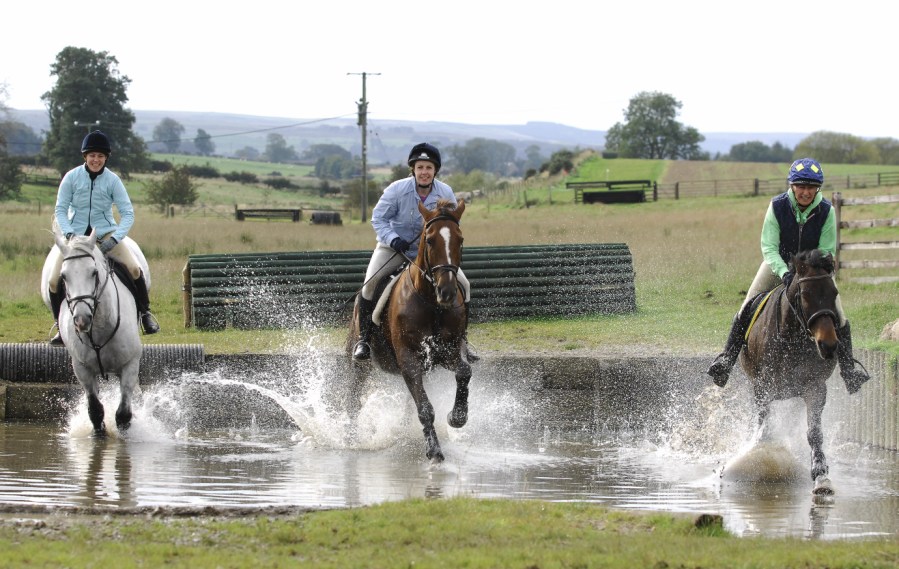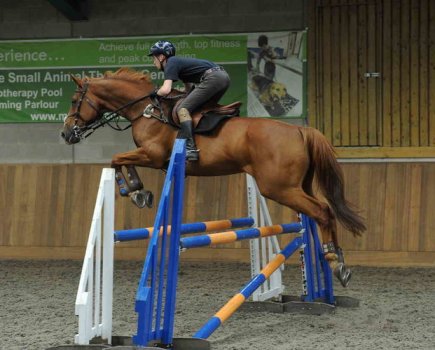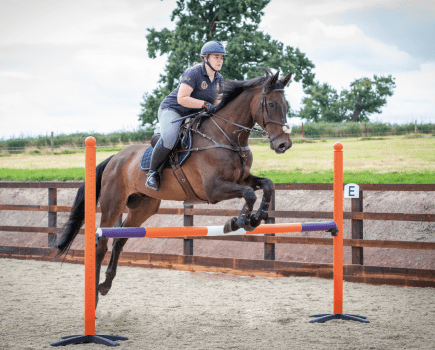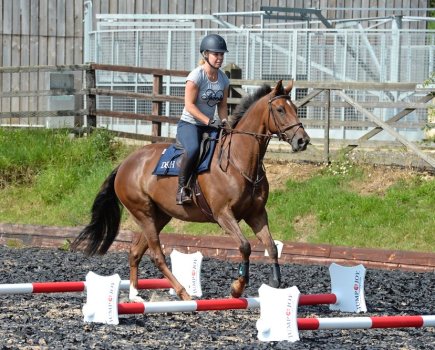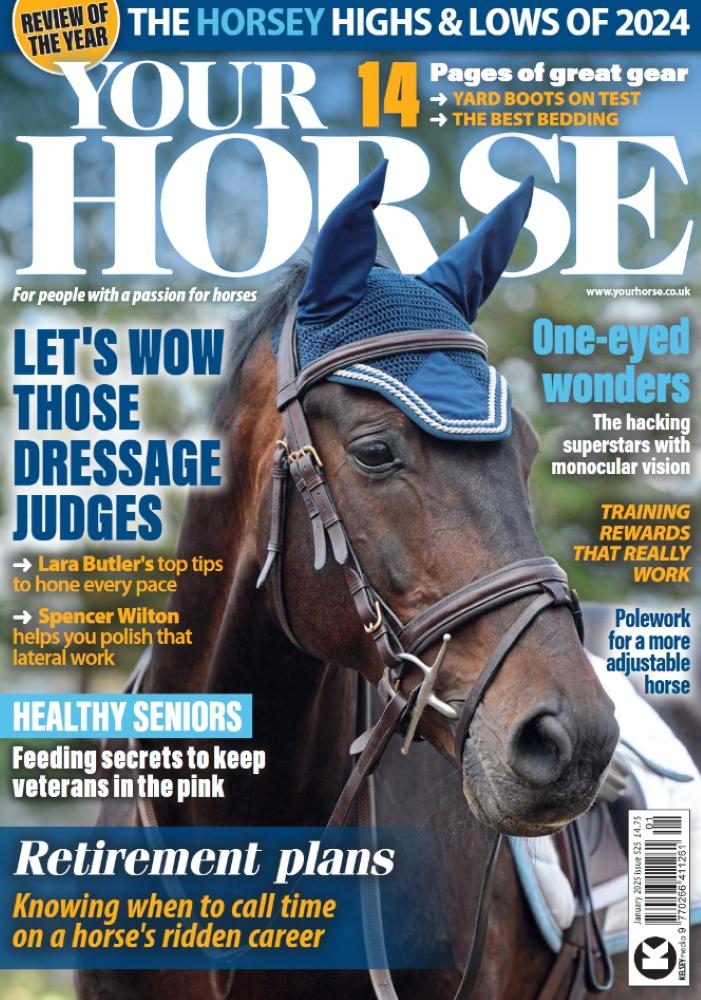Whatever level you compete at, there are three cross-country fundamentals that must be in place for you to tackle a course with confidence.
Six-time Badminton winner Lucinda Green explains banks, ditches and water.
When a horse doesn’t understand a fence he will rush. It’s the rider’s job to be tactful and calm him, so that he knows he can do it without rushing.
Banks
A bank presents a horse with two problems:
- The bank itself and that it’s on higher ground. The horse must work out how to use their legs going both up and down.
- That it means stepping up on to different ground that might vary in type and texture.
Always start with going up a bank – most horses will find it easier to work out how to go up compared to going down.
Keep a long rein, but enough contact to straighten your horse up should he try to duck left or right.
Ditches
Consider how the horse will see the ditch, and always start with the smallest ditch you can find.
If the sun’s out, jump towards the sun so your horse’s shadow doesn’t arrive at the ditch before he does. Shadows make it look like the ditch is moving, which can be scary to a horse.
If there’s no sun, always jump towards home/the lorry.
If your horse is uncertain, perhaps because of different ground, walk him alongside the ditch first in order to accustom him to the changing ground.
Be careful not to present your horse to the ditch, however, until you are ready to jump it.
Water
Changes of light on the water, and shady patches, can make some horses fearful. The ground at the water’s edge can also feel different underfoot.
Walk in and around the water a few times to get your horse used to the feel and look of it. Go in and out of the water multiple times at different places until you feel him take a breath and relax.
Most horses prefer to trot in water, because the drag on their legs in canter makes it harder to balance. So make sure you practice cantering in water with your horse so he gets used to it.
It’s a good idea to keep horses in the water for as long as possible, so they don’t learn to associate water with jumping in and getting out as quickly as possible.
TOP TIP
Have wider hands rather than a shorter rein. Short reins pull your upper body forward and that’s not where you want your balance to be.
Don’t miss the latest issue of Your Horse Magazine, jam-packed with training and veterinary advice, horse-care tips and the latest equestrian products available on shop shelves, on sale now.

